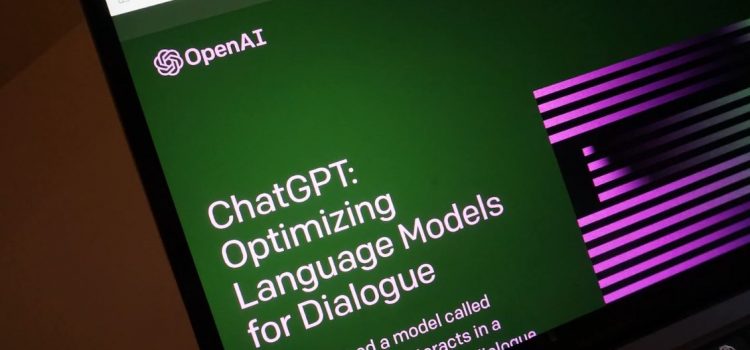
This is a free excerpt from one of Shortform’s Articles. We give you all the important information you need to know about current events and more.
Don't miss out on the whole story. Sign up for a free trial here .
How did ChatGPT set off a frenzy across the tech industry and beyond? What critical questions did ChatGPT’s emergence spark that remain unresolved? What remarkable capabilities does the technology preview about our AI-powered future?
Following its November 2022 launch, ChatGPT’s growth was unprecedented, amassing over 1.7 billion users in its first year. ChatGPT’s explosive rise not only reshaped the AI landscape but also set off industry-wide transformations, revealing both its potential for catalyzing positive change and the societal risks it embodies.
Keep reading to learn how ChatGPT changed the game in some industries.
The World Since ChatGPT
When introduced last November, the AI chatbot ChatGPT’s growth quickly took the world by storm, amassing over 1.7 billion users and redrawing the AI landscape seemingly overnight.
Background
ChatGPT is an artificial intelligence (AI)-powered conversational chatbot launched by OpenAI in November 2022. The large language model (LLM) uses machine learning to generate human-like text responses to questions and statements. It can tackle a wide array of tasks, from writing emails, essays, and code to analyzing data.
How ChatGPT Reshaped the AI Landscape and Beyond
ChatGPT’s ability to understand context, parse complex instructions, and provide coherent, seemingly intelligent responses made it go viral almost instantly.
ChatGPT’s meteoric rise over the past year dramatically altered the tech landscape. Major investments surged in the AI sector and tech giants like Microsoft, Google, and Amazon scrambled to develop competing chatbot alternatives.
At the same time, ChatGPT’s uses spread across various industries, unveiling both its potential benefits and power to disrupt:
- In business, it can bolster worker productivity and streamline processes through content automation, reducing costs.
- In education, it can increase access to diverse ideas and offer personalized learning solutions, but it has also stirred up concerns about plagiarism and cheating.
- In health care, it can automate cumbersome paperwork.
- In creative fields, such as writing and art, the technology’s ability to rapidly generate content resembling original creations has sparked critical debates over copyright infringement, plagiarism, transparency, and the devaluation of human-created works.
Critical Challenges That ChatGPT’s Emergence Revealed
Although ChatGPT has proven a formidable tool with vast potential to enhance many aspects of society, its rapid rise in the past year also spotlighted several serious problems that threaten the fabric of society. Persistent issues with the technology include:
- Biased responses, erroneous information generation, and content hallucinations.
- Its potential to spread misinformation, which some experts say is especially worrying in light of the upcoming 2024 US presidential election.
- Data privacy, security vulnerability, accountability, and transparency problems.
Urgent Regulatory Calls That ChatGPT Sparked
These potential hazards led a broad swath of experts to highlight the dangers of unchecked expansion of ChatGPT and other powerful AI tools; emphasize the need to proactively address safety and ethics issues, particularly in training data; and call for regulation of advanced AI models.
In October, President Joe Biden took a historic first step to regulate AI, signing a sweeping executive order (EO) establishing safety, security, and privacy guidelines. Though widely viewed as a significant stride toward preventing real-world harms, the EO faces implementation challenges.
Looking Ahead
Experts say that ChatGPT symbolizes a significant but still early step toward more advanced AI. Recent evolutions have enabled the technology to not just understand text, but interpret images, videos, and speech—broadening its potential uses and the ways humans engage with it.
At present, the technology falls short of human-level intelligence or artificial general intelligence (AGI)—a stage when AI can perform any intellectual task that humans can, given the right data. Some experts assert that at the point when ChatGPT and similar AI technologies are able not only process text, but to see, hear, and converse like humans, they’ll be steps closer to artificial general intelligence (AGI). However, they note that such advancements are likely decades away.

Want to fast-track your learning? With Shortform, you’ll gain insights you won't find anywhere else .
Here's what you’ll get when you sign up for Shortform :
- Complicated ideas explained in simple and concise ways
- Smart analysis that connects what you’re reading to other key concepts
- Writing with zero fluff because we know how important your time is






